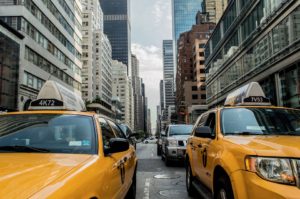
With April 1st marking the beginning of a new fiscal year, New York – along with other states – had to have handed their budgets in. One aspect of this is the permanence of the yearly 2 percent property tax cap will become permanent and $1billion will be added to the education budget. Another is the creation of the public campaign finance system which is valued at $100 million .
Regarding transportation and infrastructure issues, Manhattan is about to be subject to a congestion-pricing system. In addition, taxes on NYC real estate transactions will see an increase. And “mansion houses” (those that sell for more than $25 million) will be subject to more taxes.
According to chairman of the Regional Plan Association, Scott Rechler:
“If our transit system is the beating heart of our city, then our arteries are severely clogged, Congestion pricing is the right solution at the right time, and it is only fitting that New York City be the first city in the U.S. to incorporate it.”
Much of the budget was focused on earmarking funds for the MTA for New York’s transit system and commuter railroads.
